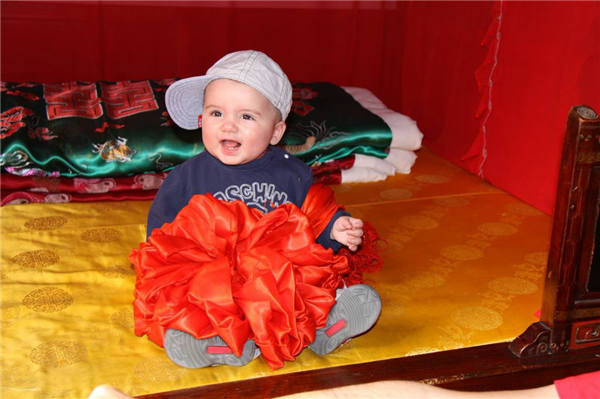 |
|
Pedro Roldao, now 5, has lived in China since he was 6 months old. |
The number of counselors has more than tripled from about four, he says.
Schools have better counseling for TCKs struggling to adapt. And the increasing availability of Western conveniences has made acclimatizing easier.
"Those simple comforts from home can make adjusting a lot easier."
Blinn believes that, while TCK upbringings' benefits outweigh the disadvantages, it's important for kids to have roots.
"Constant moving can be very jarring for kids," he says.
"They can develop a feeling of rootlessness and become a sort of nomad."
It's critical kids form attachments in new countries of residence and vital they're not dissolved too soon after.
Cannon explains passport-country identity depends on children's personalities and parents' efforts to "keep that culture alive at home".
Children younger than 7 rarely retain much sense of self from their birth countries, Mixed Blessings' co-author and mental health provider consultant Rhoda Berlin says.
"Older children who go international can have either a healthy passport identity or an idealized, romanticized vision of their homeland," she says.
Kids younger than 10 typically adapt more easily to new cultures and languages, and learn to speak without accents.
"Children over 8 have a harder time integrating to a new educational system and may not always tell their parents when things are not going smoothly," Cannon says.
